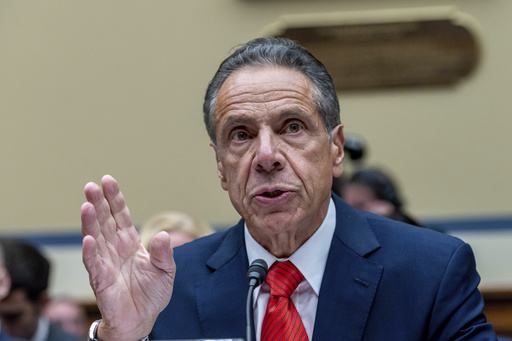
ALBANY, N.Y. — On Tuesday, New York’s highest court upheld the constitutionality of an ethics oversight body established three years ago to combat public corruption, dismissing arguments put forth by former Governor Andrew Cuomo concerning a $5 million book agreement.
The Commission on Ethics and Lobbying in Government has been striving to maintain its existence since Cuomo’s legal team successfully convinced lower courts that the agency was granted unconstitutional powers when enforcing ethical standards. Cuomo claimed that the legislation that established this commission encroached upon the executive branch’s authority, suggesting that the responsibility for enforcing ethics laws rightfully lies with that branch.
In a 4-3 decision, the Court of Appeals ruled in favor of the commission, countering previous decisions made by lower courts. Judge Jenny Rivera, writing for the majority, noted that the statute underpinning the commission limits its powers intentionally to prevent high-ranking state officials from overseeing their own ethical operations.
“Trust in government is essential to democracy because its erosion leads to apathy, disaffection, and the breakdown of civic institutions,” Rivera stated. “Given the danger of self-regulation, the Legislature and the Governor have determined that there is an urgent need for robust, impartial enforcement of the State’s ethics and lobbying laws.”
The commission was created by the Legislature and Governor Kathy Hochul as a more independent answer to a previous ethics board that faced backlash for being excessively influenced by state leaders. Its establishment followed Cuomo’s resignation in 2021 amid a scandal involving allegations of sexual harassment.
Cuomo is currently contesting the commission’s efforts that may compel him to relinquish the $5 million he received for authoring a book detailing his administration’s response to the COVID-19 pandemic. State authorities argue that Cuomo failed to adhere to a commitment to refrain from using any state resources for the creation of the book, a claim that Cuomo disputes.
A trial court judge sided with Cuomo in 2023, suggesting that the enforcement of ethics laws is a power that belongs to the executive branch. However, the judge pointed out that the governor does not have the authority to control ethics commission members or demand explanations for their actions. This ruling was upheld by a mid-level appeals court in May.
The Tuesday ruling dispels the uncertainty that has surrounded the commission for over a year and has been welcomed by advocates for government integrity.
The leadership of the commission issued a statement indicating the significance of the top court’s endorsement, highlighting that “the need for an agency with our mission is as great as it has ever been.”
Judge Michael Garcia expressed his dissent, arguing that the law forming the commission contradicted fundamental constitutional principles of separation of powers. He accused the majority opinion of narrowly interpreting the commission’s powers while failing to recognize the larger implications of their decision.
Cuomo’s spokesperson, Richard Azzopardi, mentioned in an email that they plan to seek reconsideration of the ruling, expressing concern that any judge in New York’s highest court would overlook what they see as constitutional violations that conflict with the interests of the political elite.
Cuomo stepped down in August 2021 after the attorney general’s office published findings from an investigation that concluded he had harassed at least eleven women. Cuomo has consistently denied those allegations.

